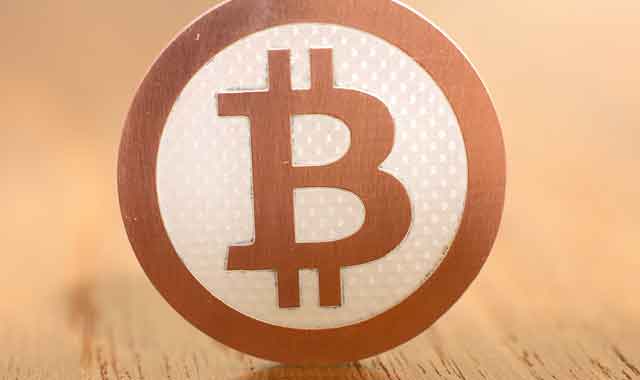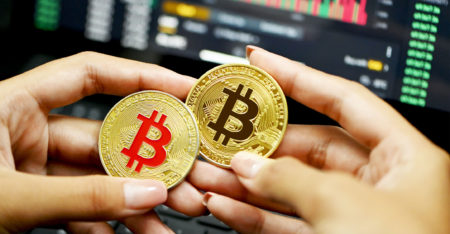
No one is really sure who created it. Financial regulators, including our own Reserve Bank, do not like it. But its proponents believe it could revolutionise international monetary and payment systems, in the same way the Internet changed how the world communicates.
It is Bitcoin, the virtual or crypto-currency that has gripped the imaginations of technophiles and sparked the ardour of venture capitalists everywhere. Used chiefly for online trade, it circumvents the need for banks and other third parties such as credit card companies.
This means transactions are cheaper, direct and allow for greater anonymity — one of the major reasons it has earned the ire of regulators. But, the currency has taken some significant knocks recently. One of the largest Bitcoin exchanges, Japan-based MtGox, recently filed for bankruptcy.
The exchange claimed that hackers had used a weakness in its software to steal hundreds of thousands of users’ Bitcoins, valued at an estimated US$490m. This did not stop an anonymous Texan buyer from snapping up an Indonesian villa recently. The Telegraph reported that the buyer paid just under a thousand Bitcoins, or around $600 000, for the Bali getaway, using BitPremier, a luxury Bitcoin site.
In the US, Bitcoins have been used to purchase a Tesla vehicle, a number of online businesses such as the dating website OKCupid accept Bitcoins, and ATMs that exchange Bitcoins for cash are popping up.
Even Bitcoin evangelists acknowledge the currency, founded on open-source technology, is in its infancy. Its volatility is notorious and got worse following the MtGox heist. It saw highs of well over $1 000 late last year, but now trades closer to half that.
Bitcoin is “revolutionary” because of its ability to address several long-existing problems with e-commerce, according to Frans Lategan, a security analyst at Sensepost.
To begin with, Bitcoin does away with the need for a centralised authority — such as a central bank — to issue the currency.
Other problems it circumvents include: the role of third parties in online payments, namely credit card merchants, who have been able to charge whatever fees they choose on transactions, as well as institute minimum transaction fees; and the difficulties of international money transfers, given the complexity of banking networks across various global jurisdictions.
The virtual currency also deals with issues such as access to credit cards, without which online purchases may not be possible, Lategan said. This is particularly pertinent for a county such as South Africa, where only a limited number of people have a credit card.
But Bitcoin is not simply a virtual currency, he explained. It is also an Internet protocol that, through the peer-to-peer Bitcoin network, creates a distributed ledger that records and verifies each transaction on the network.
A user sends Bitcoins from their personal Bitcoin wallet to another user’s wallet. The transaction is broadcast to the network for verification and secured using a digital signature, or “key”.
Transactions are verified through the submission of a complicated mathematical formula called a “proof of work”. Each new proof is linked to all those that have preceded it, in what is called a block chain, with the longest chain ultimately being the correct one, he noted. Typically, users wait to receive at least six confirmations from the network to ensure a transaction is legitimate and has been successful.
To motivate users to verify these transactions and complete these proofs, Bitcoins are rewarded at a rate of 25 Bitcoins per block — known as a “block reward”. This is also known as Bitcoin mining.
When Bitcoin first emerged, any amateur enthusiast could mine Bitcoins this way. “Today it is an arms race,” said Lategan, requiring specialised computer hardware to complete the increasingly complicated mathematical proofs.
Ultimately, there will only ever be 21m Bitcoins in existence, and already around 12m have been generated. Determined hackers can steal the digital key linked to each wallet, which is why Bitcoin users have to encrypt their wallets securely. And Lategan points out that if you lose your digital key, you can’t spend your Bitcoins. So if your PC fails and your Bitcoin wallet is stored on it, it disappears along with the rest of your data.
Although there has been growing interest in the virtual currency, it is still the “wild, wild west out there”, he said.
Regardless of the debate over whether Bitcoin will grow to dominate online trade or fizzle out, its real value lies in the protocol the virtual currency is built on to, said Lategan. It has already solved the problem of a distributed ledger and could become the basis for other technology developments.
“Bitcoin in its current form might not survive but the Bitcoin protocol is here to stay,” he said.
Bitcoins in South Africa
The currency is not as widely used in South Africa, apart from a few smaller online retailers. But websites such as bitcoin-southafrica.com have everything from jetskis to toilet paper and platinum bars on offer and accept both Bitcoin and Litecoin, another virtual currency.
Stellenbosch is home to BitX South Africa, one of the largest local Bitcoin exchanges. The company matches buyers of Bitcoin with sellers and offers to store the currency securely. Unlike other exchanges, BitX South Africa requires that its users comply with the Financial Intelligence Centre Act (Fica), removing the element of anonymity.
“We take the know-your-customer regulation very seriously,” said Carel van Wyk, a developer at BitX and co-founder of Switchless BitX South Africa’s parent company. “As a legitimate business we must comply with government regulation. We don’t have a choice.”
The exchange is tiny compared with traditional financial markets, said Timothy Strane, BitX co-founder. When launched a year ago, the exchange traded around R50 000 worth of Bitcoins in a month. The total value of its trades grew to R4m in February this year. On Wednesday, according to its website, one Bitcoin would cost you R7 075. The exchange charges a 1% fee.
Bitcoin’s notorious volatility is one of the reasons businesses are reluctant to accept the currency. In a bid to eliminate this volatility, BitX is developing merchant modules that would allow a customer to pay in Bitcoins but enable the merchant to receive the payment in rands, according to Van Wyk.
Operations such as BitX South Africa notwithstanding, the South African Reserve Bank has cautioned against the currency. In response to queries from the Mail & Guardian it repeated a statement it made in February.
“Bitcoin has no legal status or a regulatory framework. Thus it poses a number of risks for those that would choose to transact with it such as the lack of guarantee of security, convertibility or value,” said spokesman Hlengani Mathebula.
“The Reserve Bank is actively monitoring the developments around virtual currencies to inform any future regulatory approaches that may become necessary within the South African jurisdiction.”
The statement came after reports that the Standard Bank had begun a Bitcoin trial with Switchless, which was never launched. Van Wyk said the company could not comment on the Standard Bank trial.
There are other criticisms of Bitcoin. It is still relatively complicated for the average consumer without technical nous to use. And until it is readily circulated and traded, accepted by regulators, and better understood by business and society more widely, it may see no more growth.
But for some businesses, Bitcoin is as much about progressive thinking as it is about an alternative way to trade. This, at least, is what Roy Borole, MD of Cablekiosk.co.za, a Cape Town-based tech start-up that sells cables and IT accessories, believes. After launching Bitcoin in February, it is seeing five to 10 transactions in Bitcoins a week.
“It’s the progressive factor, the idea of a crypto-currency … excites us more than anything else,” he told the M&G.
It also ties in with the company’s ethos of making technology central to everyday living, Borole said.
Given the potential for innovation, and new technologies Bitcoin represents, it was akin to the printing press, argued Van Wyk. “It’s going to change the world.” — (c) 2014 Mail & Guardian
- Visit the Mail & Guardian Online, the smart news source




